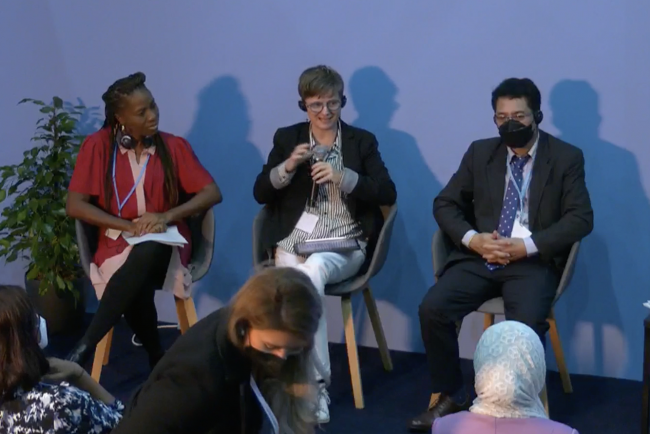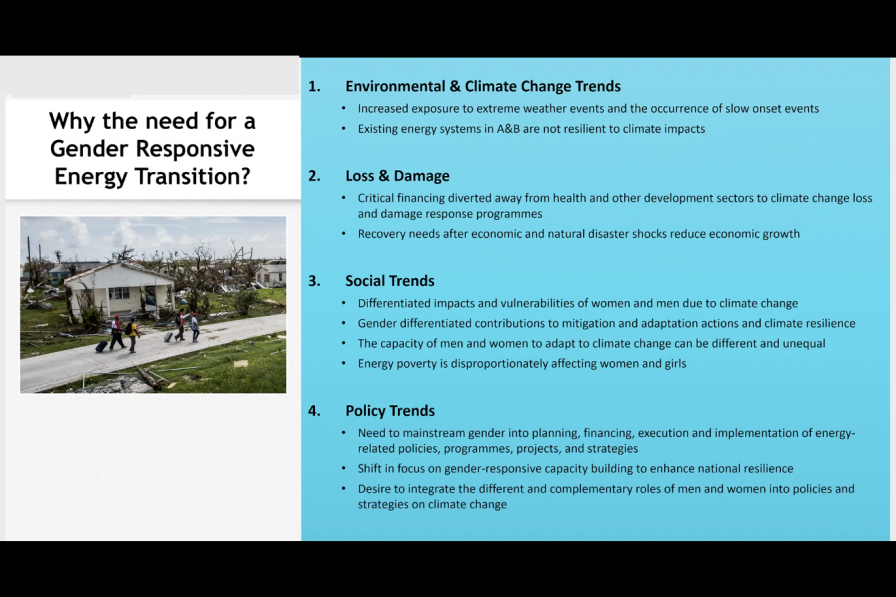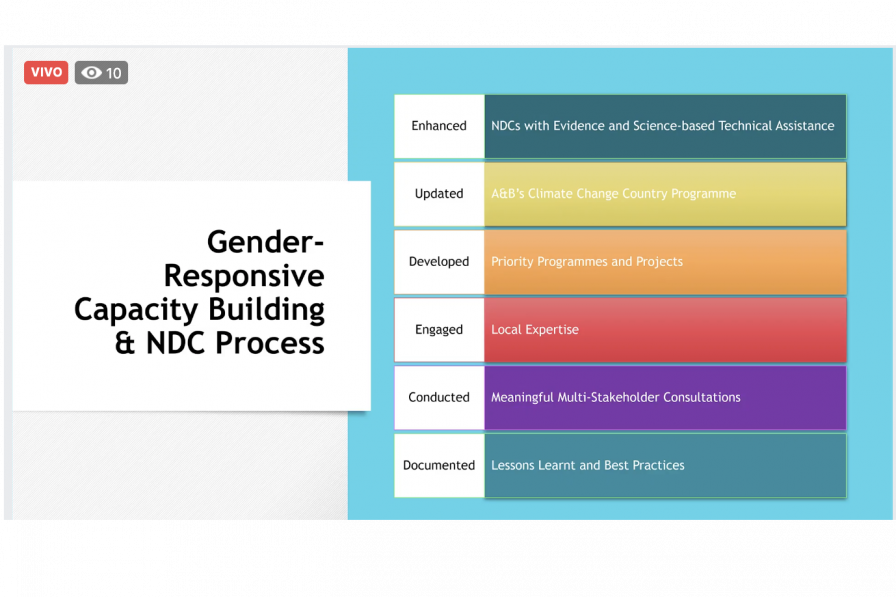Adopting Net Zero and Enhancing Climate Action with Gender Perspectives in NDCs
The importance of gender and inclusion in climate ambition and action plans cannot be overstated. While the UNFCCC’s NDC Synthesis Report indicates that gender is increasingly being incorporated into Nationally Determined Contributions (NDCs), challenges remain for developing best practices for integrating gender into future NDCs. How can we eliminate the barriers to women’s access to finance, agency, and political influence in countries’ shifts towards low-emission development pathways? And how can gender be successfully mainstreamed into climate mitigation and adaptation?
This event, which focused on these very questions, brought together country representatives to discuss: how gender and inclusion have been mainstreamed into their NDCs; and how, by doing so, countries can bring more ambitious climate action to the table while developing opportunities for women and girls. The event was co-hosted by the NDC Partnership and the Global Green Growth Institute (GGGI). Ingvild Solvang, GGGI, moderated the event.
Prior to the panel of presentations, Rob Bradley, NDC Partnership, noted how “exciting and inspirational” it was to see so many institutions bring expertise and mobilize support to drive climate action. He noted two main factors that underly climate ambition, namely:
- countries can put more action on the table if the support they need can be mobilized effectively, quickly, and at the scale required; and
- bringing gender equality and inclusion to the fore can help both climate action and development initiatives in developing countries.
He noted the NDC Partnership’s gender strategy, which aims to support gender equality integration into NDCs. He also underlined GGGI’s work on gender, noting that “none of us can solve this problem alone,” and that more cooperation is needed.
Panel Presentations
Immala Inthaboualy, Ministry of Natural Resources and Environment, Lao People’s Democratic Republic, shared some current opportunities and challenges in updating his country’s NDC. He highlighted Lao PDR’s high vulnerability to floods, droughts, landslides, storms, and disease. He shared some of the progress on his country’s 2015 NDC targets, noting several of them remain off-track or not achieved. He noted his country’s updated NDC introduces a national-level target of 60% greenhouse gas emission reductions by 2030 compared to the baseline scenario achieved in 2020, as well as conditional targets to guide towards net zero emissions by 2050. He stressed that adaptation remains a priority, with a short-term target being the mainstreaming of climate adaptation into key sectoral policies and strategies. He also underlined the need for more support, both financially and in terms of capacity-building in monitoring, reporting, and verification.
Via a pre-recorded video presentation, Luísa Tuíáfitu Malolo, Ministry of Lands, Environment, Climate Change and Natural Resources, Tonga, provided an overview of Tonga’s NDC, which covers both mitigation and adaptation, including a significant component related to marine management areas. She described the work of holding national stakeholder consultations to integrate adaptation into Tonga’s NDC. She discussed, in particular, the development of a monitoring and evaluation framework, supported by both the NDC Partnership and GGGI, which builds on previous work developed by national governments.
Ezra Christopher, Department of Environment, Antigua and Barbuda, discussed her government’s development of a gender responsive energy transition. She explained that existing energy systems in Antigua and Barbuda are not resilient to climate impacts. She said critical financing is diverted away from health and other development sectors to climate change loss and damage response programmes. Since energy poverty disproportionately affects women and girls, she said gender needs to be mainstreamed into planning, financing, and execution of energy-related strategies. She argued that shifting the focus towards gender-responsive capacity building can enhance national resilience. She provided an overview of her department’s NDC development, sharing key lessons, such as:
- different backgrounds and attitudes on gender must be overcome to make progress;
- the enabling environment for energy transitions must be strengthened ; and
- a just transition must remove barriers that prevent both women and men from retraining and transitioning careers into renewable energy.
In the subsequent question-and-answer session, participants discussed, among other subjects, how to: adapt wind energy generation infrastructure to heavy storms and hurricanes in island nations; and factor social components of development, such as unions, into NDC planning.
In closing the event, Hala Al-Hamawi, GGGI, noted that climate change is now a key part of the development agenda. She argued that finance, information management, and political agency are “vital, available tools” that can help build resilience. She said women and youth are “under-resourced and under-represented,” and called for the sharing of experiences to achieve NDCs and commitments across countries.
Bradley concluded by noting that bringing women and youth to the table through transparent, shared platforms is key to climate action.
Contact:
Hee Kyung Son | h.son@gggi.org
More Information:
To receive free coverage of global environmental events delivered to your inbox, subscribe to the ENB Update newsletter.





